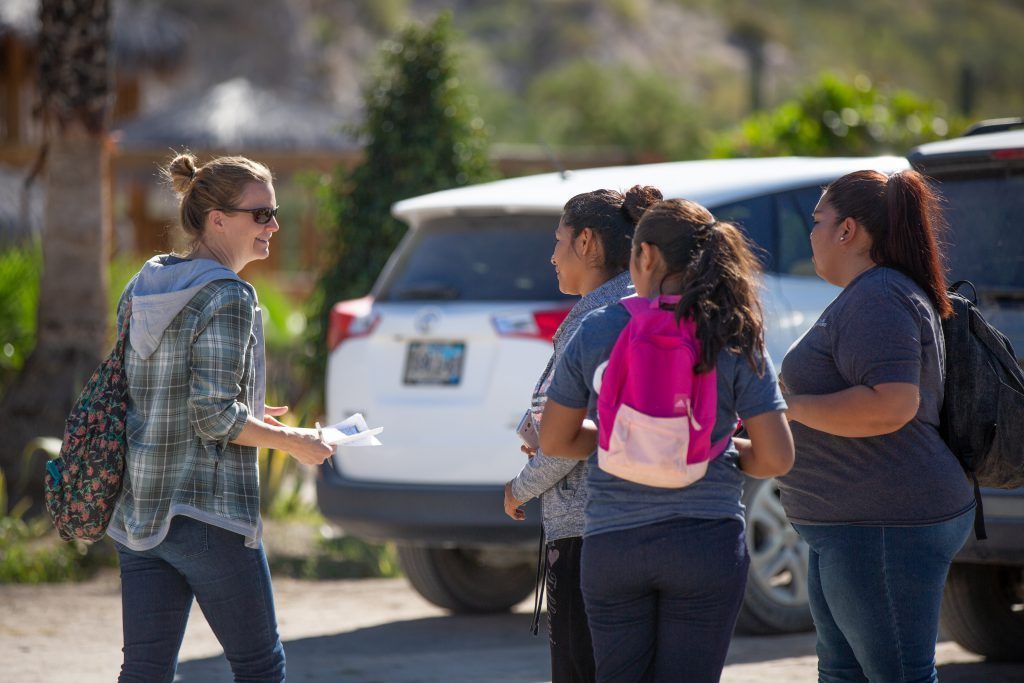Chaow sat on the bus and flipped the book over and over in his hands. It was such a small book. Yet it represented years of hard work for lots of people.
And now, it was finally ready .
The book was the first translation of the book of Matthew into a language used by a very influential Buddhist people group. And the bus Chaow was on was headed to a monastery to distribute it.
Chaow had been a monk himself once, so he had some idea of how the people would react. But this didn’t stop him from walking up the steps of the monastery and sharing the Good News with monks in their own language.
Many of the monks had questions for Chaow, so he left the new translation for them in the monastery. Now, the monks have the opportunity to read about Jesus in their own language.
“I sometimes think of that miracle book sitting there in that monastery like a spiritual time bomb, and wonder what beautiful surgery the Holy Spirit is doing in those hearts,” says one missionary.
This month, we’re praying for translation ministries happening all over the world. Keep reading to see specific ways you can pray!
Sign up here to get the new Prayer Focus in your inbox each month.
1. Pray that translators will understand each language’s complexities so they can translate accurately.
Bible translation is more than just replacing a word in one language with the same word in another language. Every language is unique and complex and often there are not direct translations available.

As a Bible translation consultant, TEAM missionary Grace McCune works hard to study each language’s complexities. One wrong word can change the meaning of an entire verse.
For example, one translation project ran into a problem when they were translating the Bible into the language of a mostly Buddist people group. This people group had no concept of what an angel was, so finding a word in their language that would convey the same meaning was challenging.
Translators and consultants have to decide what words most accurately convey the intended meaning of a text. And when texts are ambiguous to begin with, it can be all the more complicated.
Pray that translators will be able to choose the right words in the proper context to convey the meaning of the passage. Ask God to reveal any areas where a translation draft may be sending the wrong message.
2. Ask God to provide the funding for translation ministries.
The Bible is a big book and it takes a lot of work, resources and people to translate it. There are the people who make up the translation team, the consultants who make sure the translation is accurate and the publishers. All of these people need to make a living.
Plus there are travel expenses, publishing expenses, printing expenses, material costs and bank fees that come with each translation project. All of these things add up and can become very expensive.
Pray that God provides necessary funding for translation projects around the world. Ask God to show His mighty hand of providence to all who give their lives for Bible translation.
3. Pray that people will wisely use and distribute new translations in their languages.
Translation work is being done in a lot of different languages in a lot of different places. In some of these places, being a Christian, or even just having a part of the Bible is very dangerous. This can make translation work all the more difficult. People need access to the Bible in their own language, but we want to make sure we provide it in a smart and safe way.

Distributing the Bible can be very dangerous in certain areas. Ask God to give wisdom to the people printed and distributing Scripture around the world.
There is also a fear among translators that the project they worked so hard on will end up being unused. “You know, that used to be the nightmare of the Bible translator. You devote your life to this thing and it just becomes a museum piece,” said one missionary. He went on to say that for the translations he’s worked on, people are eager to read and use their Bibles.
Pray that this eagerness to use the Scriptures continues in all of the other translation projects going on. Pray that translators in red zones will be able to distribute the Scriptures to the people.
Thank you for partnering with us in prayer. Click here to get a print out of this month’s Prayer Focus requests and praise reports.
*The names of people you’ve helped may be changed to keep them safe.




















